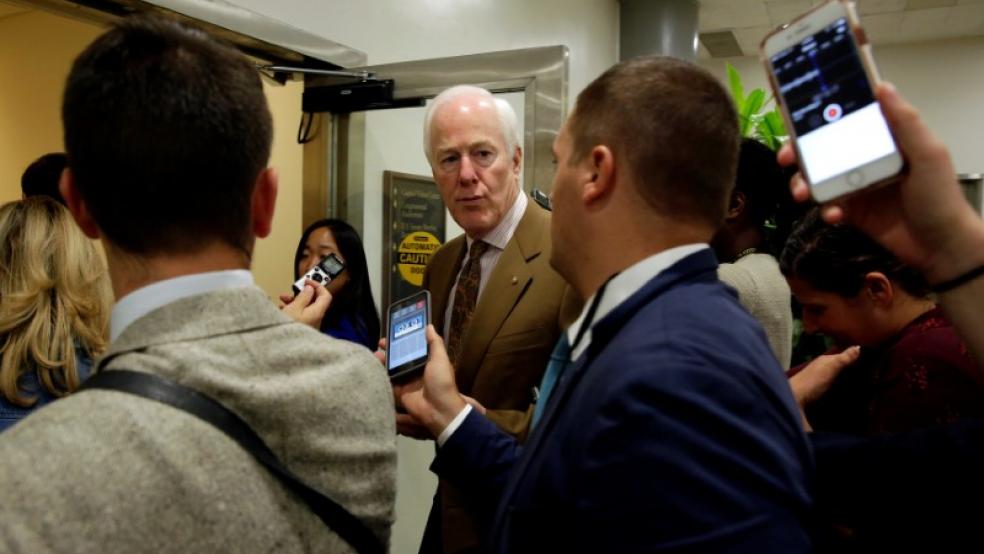WASHINGTON (Reuters) - U.S. senators said on Wednesday they are working on a bipartisan plan to keep the U.S. Export-Import Bank open but the treatment of coal-fired power projects is holding up a final deal.
Republican Mark Kirk and Democrat Joe Manchin said they wanted to craft a compromise to satisfy both Democrats who support the bank and Republicans who want changes."We look for the middle," Manchin said at a news conference which coincided with a major push by the business community to ensure the bank's survival and a plea from prominent Ex-Im critic Jeb Hensarling, a Republican, to close it down.A Senate bill may give supporters of Ex-Im, which provides support for U.S. exporters and the buyers of U.S. goods, leverage to push ahead with extending the bank's mandate, which has to be renewed before June 30 if it is to remain open.Democrats and Republicans in the House of Representatives have put forward their own bills. But Hensarling, as chairman of the committee responsible for the bank, is influential in determining which bills come up for a vote. Kirk said the bill would include reforms in legislation backed by 58 House Republicans but "the coal problem has been holding us up."The House Republican bill would suspend rules limiting Ex-Im financing for coal-fired power plants, while an alternative introduced by senior Democrats on Wednesday leaves limits in place.Manchin, whose state of West Virginia is a major coal producer, said staff were working to get the language on coal right. "There's going to be some people that don't want any coal language at all, we know that, that's not a proper approach to take, that's putting your head in the sand," Manchin said.A senior staffer working on the bill, which would give Ex-Im five more years and cut its lending cap by $5 billion to $135 billion, said a compromise could involve a partial rollback of the limits on coal.More than 600 small to mid-sized exporters, manufacturers and business representatives from 41 states visited Capitol Hill on Wednesday to lobby lawmakers to keep Ex-Im open.Hensarling wrote in a letter to fellow lawmakers that Ex-Im used taxpayer funds to help finance select U.S. exports at the expense of others.Critics charge that Ex-Im's support for overseas buyers of U.S. goods, such as Boeing Co planes, gives foreign firms an edge over U.S. competitors. (Reporting by Krista Hughes; editing by Andrew Hay)Senators work on bipartisan U.S. Export-Import Bank survival plan

Lucas Jackson



